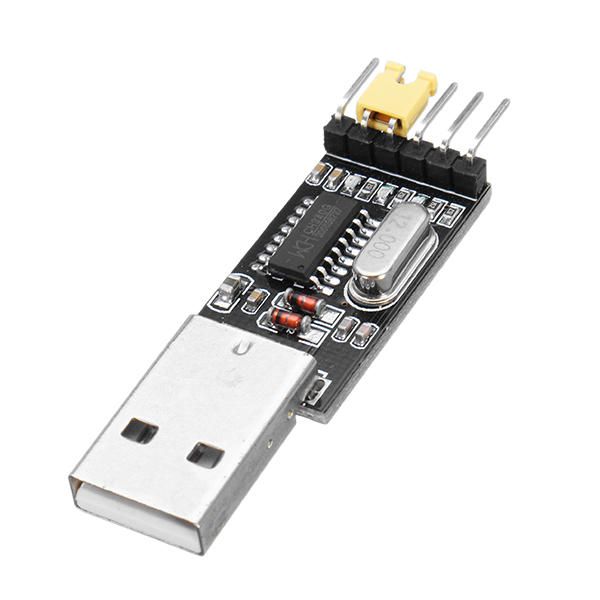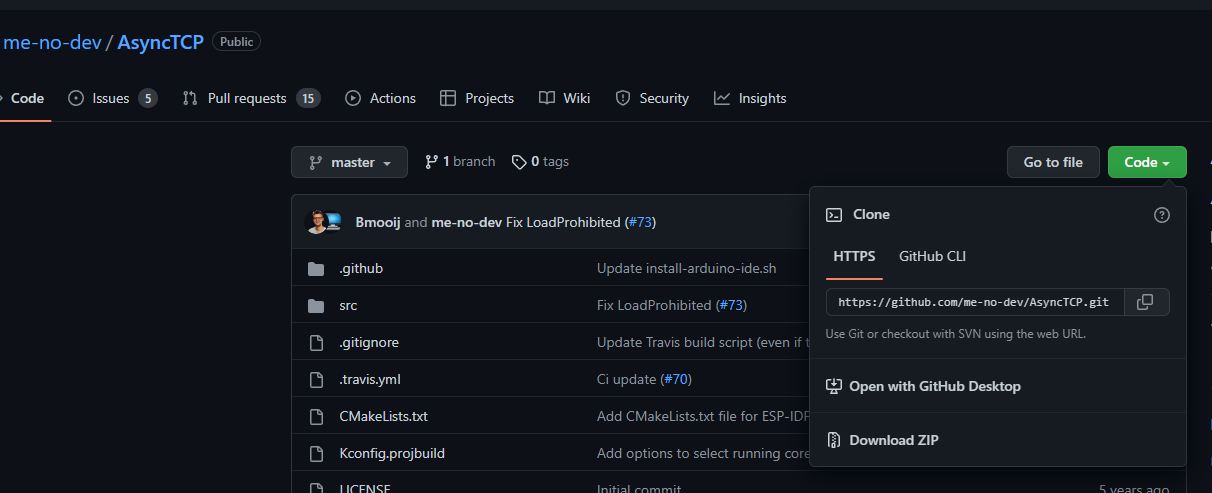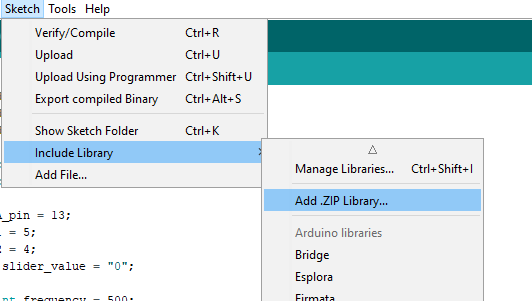Last Updated or created 2022-07-29
Adding boards:
File > Preferences > Additional Boards
Add url (comma separated)
Press OK
ESP32 :
https://raw.githubusercontent.com/espressif/arduino-esp32/gh-pages/package_esp32_index.jsonATTINY85:
https://arduino.esp8266.com/stable/package_esp8266com_index.json,https://raw.githubusercontent.com/damellis/attiny/ide-1.6.x-boards-manager/package_damellis_attiny_index.json
After that go to the Board manager.
Tools > Board: ..... > Board Manager
Search board, click and install.
NOTE: Some sketches require a specific version!
Select your board, and write/open you sketch.

First thing to do is test compiling your sketch
Press the little button on the left
Libraries:
When you get a compile error like below, you are missing those libraries
Goto tools > Manage libraries
Search for your needed library, sometimes there are multiple which look alike. This is a trial and error approach.
Sometimes it doesn’t exists and you need to upload a zip containing the library. (Sketch > Include Library > Add .zip library
When looking at the first lines of you sketch, there are include statements like:
#include <WiFi.h> #include <AsyncTCP.h> #include <ESPAsyncWebServer.h>
But sometimes there are statements without the < > characters.
Then it will be a included file just for your sketch.
Redo a test recompile using the tic icon again.
Everything okay? .. Select the correct port in Tools > Port
And press the Arrowright icon to upload/flash.
Note: sometimes you have to hold a button or press a little flash button on your device to flash.
esptool.py v3.3
Serial port COM8
Connecting.....
Chip is ESP32-D0WDQ6-V3 (revision 3)
Features: WiFi, BT, Dual Core, 240MHz, VRef calibration in efuse, Coding Scheme None
Crystal is 40MHz
MAC: c8:c9:a3:f9:02:d0
Uploading stub...
Running stub...
Stub running...
Changing baud rate to 921600
Changed.
Configuring flash size...
Flash will be erased from 0x00001000 to 0x00005fff...
Flash will be erased from 0x00008000 to 0x00008fff...
Flash will be erased from 0x0000e000 to 0x0000ffff...
Flash will be erased from 0x00010000 to 0x000c7fff...
Flash params set to 0x022f
Compressed 18880 bytes to 12992...
Writing at 0x00001000... (100 %)
Wrote 18880 bytes (12992 compressed) at 0x00001000 in 0.3 seconds (effective 482.8 kbit/s)...
Hash of data verified.
Compressed 3072 bytes to 128...
Writing at 0x00008000... (100 %)
Wrote 3072 bytes (128 compressed) at 0x00008000 in 0.0 seconds (effective 627.7 kbit/s)...
Hash of data verified.
Compressed 8192 bytes to 47...
Writing at 0x0000e000... (100 %)
Wrote 8192 bytes (47 compressed) at 0x0000e000 in 0.1 seconds (effective 1087.9 kbit/s)...
Hash of data verified.
Compressed 750976 bytes to 477779...
Writing at 0x00010000... (3 %)
...
...
...
Writing at 0x000bb633... (93 %)
Writing at 0x000c0acd... (96 %)
Writing at 0x000c6649... (100 %)
Wrote 750976 bytes (477779 compressed) at 0x00010000 in 6.3 seconds (effective 947.4 kbit/s)...
Hash of data verified.
Leaving...
Hard resetting via RTS pin...
Most of the boards you can connect via micro-usb.
Sometimes you need adaptors like:


TIPS ‘n tricks:
Open same file in another editor, so you can compare for example the top (declarations) and futher down the code.
Else you could be ending up scolling up/down all day long. And probably forgetting how a variablename was exacly spelled.
Use serial monitor!
When debugging this is a valuable tool.
Enter statements into you code, which prints debugging info to a serial monitoring window when your device is still hookedup to your PC.
How to print?
void setup(){
Serial.begin(115200);
... code
Serial.println("Connecting...");
... code
Serial.println(WiFi.localIP());
or
Serial.println(measuredvalue);
Other obvious tips:
Add comment lines (documentation)
Use variable names which make sense!
( Hard to find what aaaa() does, or what tmp-a is, but
LastTempValue says a lot more)








